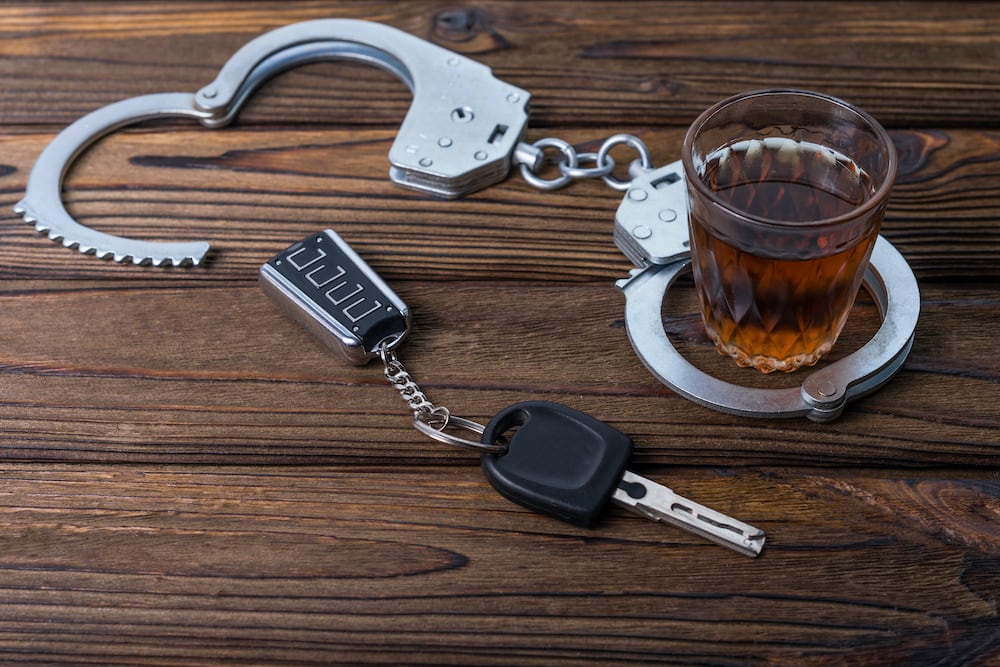Driving While Intoxicated (DWI) is a serious offense that not only endangers lives but also comes with a significant financial burden. If you’re reading this, you’re either curious or cautious or facing the consequences of a DWI in Texas. Understanding the actual cost of a DWI, which extends far beyond just the initial fine, is crucial for anyone on the road.
This article will guide you through the various expenses you can expect, from legal fees to increased insurance rates and from state fines to personal costs that are rarely discussed. Keep reading to equip yourself with knowledge that could save you money and future headaches.
- What are the immediate financial penalties for a first-time DWI conviction in Texas?
- How much will legal representation for a DWI in Texas set me back?
- Does a DWI in Texas affect car insurance rates, and by how much?
- Are there additional fines and fees associated with a DWI in Texas?
- How does a DWI impact employment and earning potential in Texas?
- What are the costs of mandatory DWI education and intervention programs in Texas?
- What is the price tag for license reinstatement after a DWI in Texas?
- Are there long-term financial consequences of a DWI on my record in Texas?
- How does a DWI affect travel and mobility costs in Texas?
- Can a DWI in Texas result in costs beyond the individual, such as familial financial strain?
Driving under the influence of alcohol or drugs is a decision that has far-reaching consequences. If caught, offenders face immediate financial penalties that can make a severe dent in their wallets. In Texas, the costs of a DWI can quickly add up due to the stringent penalties and the state’s commitment to deterring drunk driving.
What are the immediate financial penalties for a first-time DWI conviction in Texas?
When someone is convicted of a DWI for the first time in Texas, several financial penalties come into play:
- State Fines: These can range from $2,000 to $6,000 depending on the blood alcohol content (BAC) at the time of arrest.
- Bail: If arrested, bail fees to be released could range from a few hundred to several thousand dollars.
- Towing and Impound: Your vehicle will be towed and impounded, costing upwards of $100 to several hundred dollars.
- Court Costs: You will be required to pay court fees, which can add another few hundred dollars.
- Attorney Fees: While optional, having legal representation is advisable, and this can run from to more than $10,000.
Additional Considerations
- Increased Insurance Premiums: Following a DWI conviction, your car insurance premiums will likely skyrocket.
- DWI Classes or Treatment: Required educational programs for DWI offenders carry their costs.
- Lost Wages: Court appearances, jail time, or community service may lead to lost income.
As you can see, the immediate financial penalties of a DWI in Texas can accumulate substantially. But this is only the tip of the iceberg regarding the overall cost. Consider these expenses as the initial shock before the long-term financial implications of a DWI begin to sink in.
How much will legal representation for a DWI in Texas set me back?
Hiring an attorney for a DWI case in Texas is an investment in your legal defense, and it could mean the difference between harsher penalties or more lenient outcomes. Costs can vary significantly based on the complexity of the case and the attorney’s expertise. Here are some factors affecting the cost:
- Reputation and Experience: Seasoned attorneys with a track record of success usually charge higher fees.
- Case Complexity: More complex cases, like those involving accidents or injuries, will typically be more expensive.
- Type of Representation: The costs differ if you opt for a private attorney versus a public defender.
Additional Costs
- Expert Witnesses: Their fees are extra if your case requires expert testimony.
- Trial Preparation: Should your case go to trial, expect to pay more for the preparation required.
Legal defense plays a pivotal role in mitigating the overall costs and consequences of a DWI in Texas. It’s an area where trying to cut corners can cost you more in the long run.
Does a DWI in Texas affect car insurance rates, and by how much?
After a DWI conviction in Texas, your car insurance rates will almost certainly increase. Insurance companies view drivers with DWIs as high-risk, which results in higher premiums. Here’s what you can expect:
- SR-22 Certification: You must file an SR-22 form proving that you carry the minimum liability insurance. The filing fee is minimal, but the associated insurance premium hike is not.
- Increased Premiums: A post-DWI policy can be two to three times more expensive than a typical policy. In some cases, your insurance premium could even quadruple.
Examples of Increased Costs
- Before DWI: Pre-DWI, you might have been paying $1,200 annually for car insurance.
- After DWI: Post-DWI, the rate can jump to anywhere between $2,400 and $4,800 or more annually.
The spike in premiums often remains for at least three years, assuming no additional infractions. Over these three years, this could mean an additional cost of thousands of dollars spent on car insurance alone.
Other Insurance Considerations
- Insurance Policy Renewal: An insurance company might choose not to renew your policy after a DWI conviction.
- Difficulty Finding Coverage: You might also find securing insurance from another provider challenging once you have a DWI on your record.
Thus, the impact of a DWI on car insurance rates is one of the most significant long-term financial repercussions you will face.
Are there additional fines and fees associated with a DWI in Texas?
Beyond the basic fines and legal costs, individuals convicted of a DWI in Texas face numerous other penalties and fees that can add up over time. Here are some of those additional costs:
- Probation Fees: If you’re placed on probation, you’ll have to cover the supervision fees, which could be up to $100 monthly.
- Alcohol Education Programs: Mandatory DWI education or intervention programs are not free, and fees can be several hundred dollars.
Examples of Miscellaneous Fees
- Ignition Interlock Device (IID): Required installation and monthly rental can cost around $70 to $150.
- Community Service Administration Fees: While community service is an alternative to fines, some counties charge administrative fees.
- Emergency Response: The costs incurred by emergency responders to an incident may be charged back to the offender.
The accumulation of these assorted fines and fees reveals the economic undertow of a DWI conviction.
How does a DWI impact employment and earning potential in Texas?
The costs associated with a DWI in Texas extend beyond just immediate expenses and touch upon long-term financial health, particularly when it comes to employment and earnings. Here’s how:
- Job Loss: A DWI conviction could lead to job termination, especially if the job requires driving.
- Career Stagnation: You may be passed over for promotions or be unable to secure positions that require a clean driving record.
- Reduced Job Prospects: Certain industries, such as transportation, medicine, or education, might be closed to you after a DWI.
Impact on Earnings
- Missed Work: Court dates, community service, and DWI program requirements can result in lost wages.
- Career Switch: You may have to switch to a lesser-paying job if your current profession is no longer viable.
- Professional Licenses: You may lose professional licenses or certifications or find it challenging to acquire new ones.
Not only may your current earning potential suffer, but your future promotional prospects and overall career trajectory can be significantly affected by a DWI conviction.
What are the costs of mandatory DWI education and intervention programs in Texas?
In Texas, those convicted of a DWI are often required to attend DWI education or intervention programs. These programs have associated costs:
- Educational Classes: Depending on the program, fees can range from around $70 to several hundred dollars.
- Intervention Programs: More extensive intervention may be required for repeat offenders, with even higher costs.
Details of Program Costs
- DWI Education Program: A 12-hour course for first-time offenders typically costs around $70 to $100.
- DWI Intervention Program: A more in-depth 32-hour course for repeat offenders can cost up to $300.
While these are set costs, additional expenses may be related to transportation to and from the programs, potential missed work, and associated childcare—adding more layers to the total cost.
What is the price tag for license reinstatement after a DWI in Texas?
Getting your driving privileges reinstated after a DWI in Texas doesn’t come cheap. Here are some of the costs associated with license reinstatement:
- Reinstatement Fees: These fees can be several hundred dollars.
- SR-22 Insurance: The high-risk insurance certificate itself has a fee, along with the increased insurance premiums.
Obtaining your license reinstated is a necessary step to regaining your mobility and freedom. Still, it comes at an additional financial cost, further increasing the toll of a DWI on your finances.
Are there long-term financial consequences of a DWI on my record in Texas?
Indeed, a DWI in Texas can have lasting financial consequences that affect various aspects of life:
- Criminal Record: This can hinder job opportunities, loan approvals, and housing applications, affecting financial stability.
- Ongoing Insurance Costs: The insurance premium increase, as mentioned before, can last for years, significantly raising the cost of car ownership.
These consequences demonstrate that the financial ramifications of a DWI conviction are not just immediate but persist long into the future.
Are there long-term financial consequences of a DWI on my record in Texas?
Indeed, a DWI in Texas can have lasting financial consequences that affect various aspects of life:
- Criminal Record: This can hinder job opportunities, loan approvals, and housing applications, affecting financial stability.
- Ongoing Insurance Costs: The insurance premium increase, as mentioned before, can last for years, significantly raising the cost of car ownership.
These consequences demonstrate that the financial ramifications of a DWI conviction are not just immediate but persist long into the future.
How does a DWI affect travel and mobility costs in Texas?
The travel and mobility costs after a DWI in Texas can vary widely:
- Limited Driving Privileges: This may require using taxis or rideshare services, which could become a significant monthly expense.
- Reliance on Public Transportation: If public transit is not convenient or available, this could necessitate costly lifestyle adjustments.
Whether it’s the direct cost of alternative transportation or the time and efficiency lost to less convenient travel options, these are essential considerations in the overall financial impact of a DWI.
Can a DWI in Texas result in costs beyond the individual, such as familial financial strain?
A DWI can have a ripple effect:
- Impact on Family: Legal costs and increased insurance rates can strain the family budget.
- Opportunity Cost: Significant time spent dealing with DWI-related issues is time not spent with family or on productive activities.
The actual cost of a DWI in Texas encompasses both measurements on paper and the less tangible impacts on the driver’s loved ones.
In summary, the financial fallout from a DWI conviction in Texas is significant and multifaceted. The price of a DWI is steep, from the direct costs of fines and legal fees to the less obvious but equally impactful expenses related to employment and personal relationships. Consider this a cautionary tale—it’s essential to understand the full spectrum of consequences before getting behind the wheel.
Suppose you or someone you know is facing the challenge of a DWI. In that case, it’s imperative to seek expert legal advice, explore options for financial planning, and, most importantly, consider the broader implications for the future. Remember, the costs outlined here are not simply dollars and cents; they represent lost opportunities, stress, and hardships that could otherwise be avoided. Stay informed, stay safe, and always think before you drink and drive. Those facing DWI charges are encouraged to contact legal entities and support organizations within their community for more information and resources. Call Spangler Law for help today.



